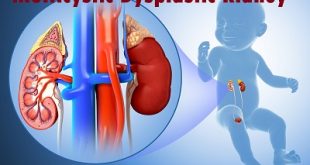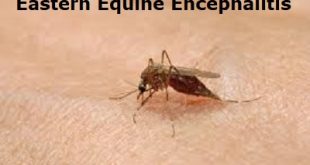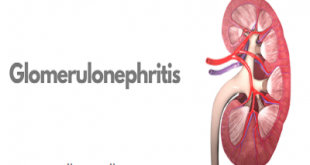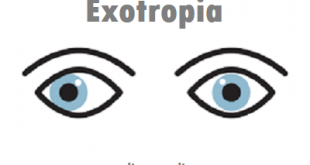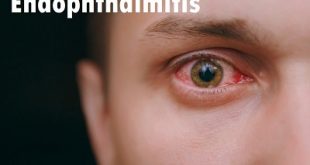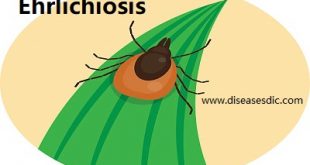Overview
End-stage renal disease, also called end-stage kidney disease or kidney failure, occurs when chronic kidney disease — the gradual loss of kidney function — reaches an advanced state. In end-stage renal disease, your kidneys no longer work as they should to meet your body’s needs.
Your kidneys filter wastes and excess fluids from your blood, which are then excreted in your urine. When your kidneys lose their filtering abilities, dangerous levels of fluid, electrolytes and wastes can build up in your body.
With end-stage renal disease, you need dialysis or a kidney transplant to stay alive. But you can also choose to opt for conservative care to manage your symptoms — aiming for the best quality of life during your remaining time.
What causes kidney failure or End-Stage Renal Disease?
End-Stage Renal Disease is usually caused by other health problems that have damaged your kidneys little by little throughout many years, including:
- Diabetes, which is the most common cause
- High blood pressure, which is the second most common cause
- Autoimmune diseases, such as lupus and IgA nephropathy
- Genetic diseases (diseases passed down from one or both parents), such as polycystic kidney disease
- Nephrotic syndrome
- Problems in your urinary tract (organs that make urine and remove it from your body), such as kidney stones
- Smoking tobacco
- Drinking too much alcohol (no more than 1 drink a day for women, and no more than 2 drinks a day for men)
These health problems do not always lead to CKD or kidney failure.
Sometimes a kidney problem called acute kidney injury (AKI) can also cause kidney failure. This type of kidney failure happens quickly, usually within two days, and is most common in people who are already hospitalized for other health problems. AKI is also known as acute kidney failure or acute renal failure.
Who is at risk of end-stage kidney disease?
Certain people are at higher risk of developing ESRD, such as people who have:
- Diabetes
- Hypertension
- Relatives with ESRD
Your risk of developing ESRD also rises when you have any type of kidney condition, including:
- Polycystic kidney disease (PKD)
- Alport syndrome
- Interstitial nephritis
- Pyelonephritis
- Certain autoimmune conditions, such as lupus
Symptoms of end-stage kidney disease
Common symptoms may include:
- General ill feeling and fatigue
- Itching (pruritus) and dry skin
- Headache
- Weight loss without trying
- Loss of appetite
- Nausea
Other symptoms may include:
- Abnormally dark or light skin
- Nail changes
- Bone pain
- Drowsiness and confusion
- Problems concentrating or thinking
- Numbness in the hands, feet, or other areas
- Muscle twitching or cramps
- Breath odor
- Easy bruising, nosebleeds, or blood in the stool
- Excessive thirst
- Frequent hiccups
- Problems with sexual function
- Menstrual periods stop (amenorrhea)
- Sleep problems
- Swelling of the feet and hands (edema)
- Vomiting, often in the morning
What are the complications of end-stage kidney disease?
End-stage renal failure can cause complications and emergencies that require treatment, including:
- Anemia (not enough red blood cells to carry oxygen throughout the body.)
- Bone disease.
- Brain damage.
- Edema (swelling)
- Fluid in and around the lungs.
- High levels of certain minerals (potassium or phosphorus).
- Infections.
- Nerve damage.
- Seizures.
- Stroke.
How is end-stage kidney disease diagnosed?
Your doctor diagnoses ESRD using a physical examination and tests to check your kidney function. Kidney function tests include:
Urinalysis: This test helps your doctor check for protein and blood in your urine. These substances indicate that your kidneys aren’t processing waste properly.
Serum creatinine test: This test helps your doctor check whether creatinine is building up in your blood. Creatinine is a waste product that your kidneys should filter out of your body.
Blood urea nitrogen test: This test helps your doctor check how much nitrogen is in your blood.
Estimated glomerular filtration rate (GFR): This test allows your doctor to estimate how well your kidneys filter waste.
Treatment of end-stage kidney disease
ESRD may need to be treated with dialysis or kidney transplant. You may need to stay on a special diet or take medicines to help your body work well.
Dialysis
Dialysis does some of the job of the kidneys when they stop working well.
Dialysis can:
- Remove extra salt, water, and waste products so they do not build up in your body
- Keep safe levels of minerals and vitamins in your body
- Help control blood pressure
- Help the body make red blood cells
Your provider will discuss dialysis with you before you need it. Dialysis removes waste from your blood when your kidneys can no longer do their job.
- Usually, you will go on dialysis when you have only 10% to 15% of your kidney function left.
- Even people who are waiting for a kidney transplant may need dialysis while waiting.
Two different methods are used to perform dialysis:
- During hemodialysis, your blood passes through a tube into an artificial kidney, or filter. This method can be done at home or at a dialysis center.
- During peritoneal dialysis, a special solution passes into your belly though a catheter tube. The solution remains in your abdomen for period of time and then is removed. This method can be done at home, at work, or while traveling.
Kidney Transplant
A kidney transplant is surgery to place a healthy kidney into a person with kidney failure. Your doctor will refer you to a transplant center. There, you will be seen and evaluated by the transplant team. They will want to make sure that you are a good candidate for kidney transplant.
Special Diet
You may need to continue following a special diet for chronic kidney disease. The diet may include:
- Eating foods low in protein
- Getting enough calories if you are losing weight
- Limiting fluids
- Limiting salt, potassium, phosphorous, and other electrolytes
Other Treatment
Other treatment depends on your symptoms, but may include:
- Extra calcium and vitamin D. (Always talk to your provider before taking supplements.)
- Medicines called phosphate binders, to help prevent phosphorous levels from becoming too high.
- Treatment for anemia, such as extra iron in the diet, iron pills or shots, shots of a medicine called erythropoietin, and blood transfusions.
- Medicines to control your blood pressure.
Talk to your provider about vaccinations that you may need, including:
- Hepatitis A vaccine
- Hepatitis B vaccine
- Flu vaccine
- Pneumonia vaccine (PPV)
Prevention
In some cases, there is no way to prevent kidney failure. This is the case when it is due to a genetic condition or malformation, injury, or infection.
That said, the best way to prevent ESRD is to follow lifestyle and dietary habits that reduce the risk of developing the two leading causes of ESRD, diabetes and high blood pressure.
For example, a person could try:
- Maintaining a moderate body weight
- Eating a healthy, balanced diet
- Reducing their intake of saturated fat
- Avoiding or limiting alcohol consumption
- Avoiding or limiting their intake of sweetened foods and drinks
- Reducing their intake of processed or heavily refined foods
- Getting enough exercise and sleep each day
- Staying hydrated
- Managing or reducing stress
- Avoiding sitting for prolonged periods of time
 Diseases Treatments Dictionary This is complete solution to read all diseases treatments Which covers Prevention, Causes, Symptoms, Medical Terms, Drugs, Prescription, Natural Remedies with cures and Treatments. Most of the common diseases were listed in names, split with categories.
Diseases Treatments Dictionary This is complete solution to read all diseases treatments Which covers Prevention, Causes, Symptoms, Medical Terms, Drugs, Prescription, Natural Remedies with cures and Treatments. Most of the common diseases were listed in names, split with categories.

